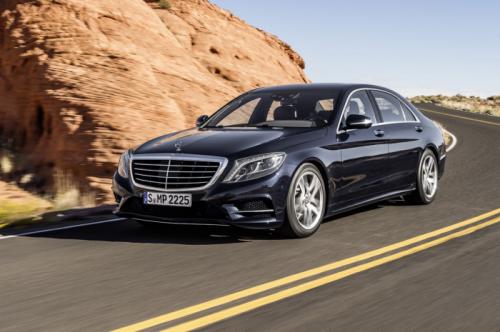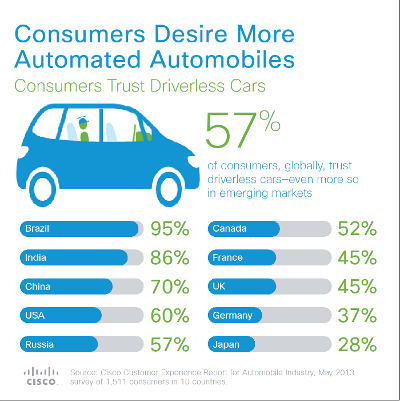AUVSI Driverless Car Summit Part 2
Submitted by brad on Wed, 2013-06-19 12:14The AUVSI summit on "driverless" cars last week contained 2 days of nothing but robocars, and I reported on issues regarding Google and policy in part 1.
As noted, NHTSA released their proposal for how they want to regulate such vehicles. In it, they defined levels 0 through 4. Level 2 is what I (and GM) have been calling "super cruise" -- a car which can do limited self driving but requires constant human supervision. Level 3 is a car which can drive without constant attention, but might need to call upon a human driver (non-urgently) to handle certain streets and situations. Level 4 is the fully automatic robocar.
Level 2 issues
Level 2 is coming this year in traffic jams in the Mercedes S and the BMW 5, and soon after from Audi and Volvo. GM had announced super cruise for the 2015 Cadillac line but has pulled back and delayed that to later in the decade. Nonetheless the presentation from GM's Jeremy Salinger brought home many of the issues with this level.
GM has done a number of user studies in their super cruise cars on the test track. And they learned that the test subjects very quickly did all sorts of dangerous things, definitely not paying attention to the road. They were not told what they couldn't do, but subjects immediately began texting, fiddling around in the back and even reading (!) while the experimenters looked on with a bit of fear. No big surprise, as people even text today without automatic steering, but the experimental results were still striking.
Because of that GM is planning what they call "countermeasures" to make sure this doesn't happen. They did not want to say what countermeasures they liked, but in the past, we have seen proposals such as:
- You must touch the wheel every few seconds or it disengages
- A camera looks at your eyes and head and alerts or disengages if you look away from the road for too long
- A task for your hands like touching a button every so often
The problem is these countermeasures can also get annoying, reducing the value of the system. It may be the lack of ability to design a good countermeasure is what has delayed GM's release of the product. There is a policy argument coming up about whether level 2 might be more dangerous than the harder levels 3 and above, because there is more to go wrong with the human driver and the switches between human and machine driving. (Level 4 has no such switches, level 3 has switches with lots of warning.)
On the plus side, studies on existing accidents show that accident-avoidance systems, even just forward collision avoidance, have an easy potential for huge benefits. Already we're seeing a 15% reduction in accidents in some studies just from FCA, but studies show that in 33% of accidents, the brakes were never applied at all, and only in just 1% of accidents were the brakes applied with full force! As such, systems which press the brakes and press them hard when they detect the imminent accident may not avoid the accident entirely, but they will highly reduce the severity of a lot of accidents.




 I would hardly call it a theme, but two speakers expressed fairly negative comments about Google's efforts, raising some interesting subjects. (As an important disclaimer, the Google car team is a consulting client of mine, but I am not their spokesman and the views here do not represent Google's views.)
I would hardly call it a theme, but two speakers expressed fairly negative comments about Google's efforts, raising some interesting subjects. (As an important disclaimer, the Google car team is a consulting client of mine, but I am not their spokesman and the views here do not represent Google's views.)


